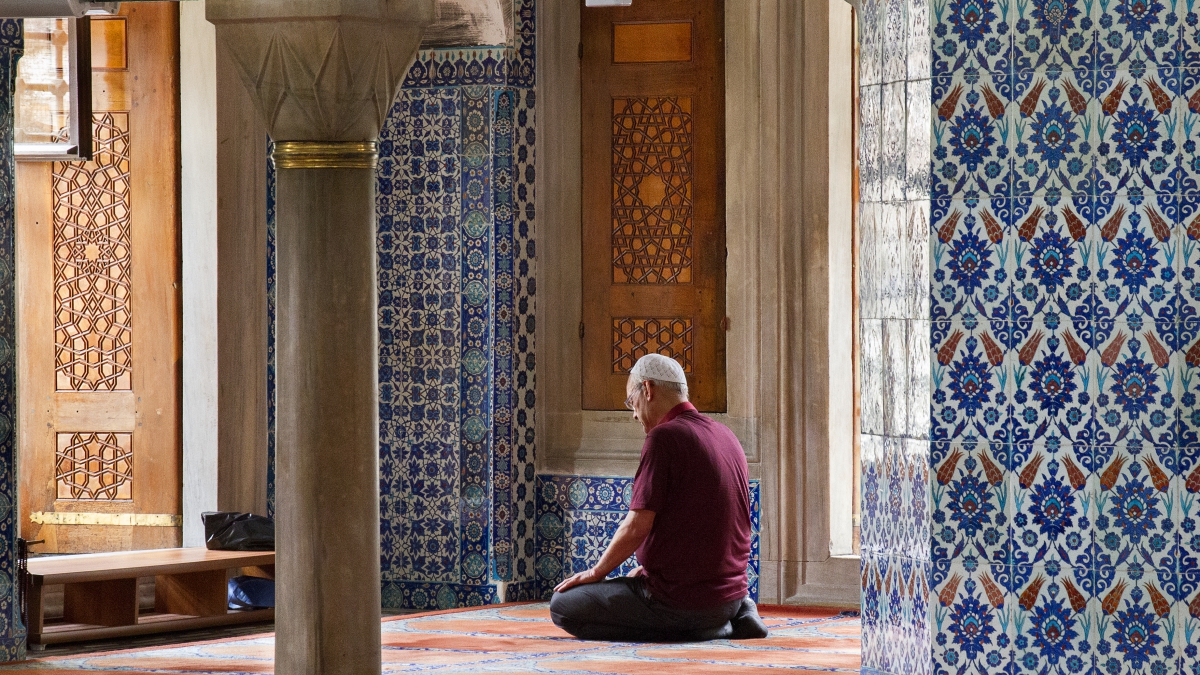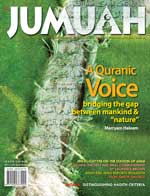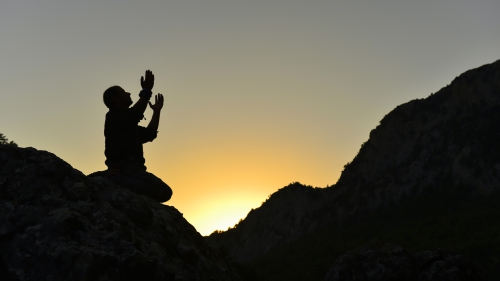Ramadan Tips for New Muslims

Entering into my 15th Ramadan, I feel an excitement building. I am looking forward to the fast of Ramadan and all the amazing things that come with it: growing spiritually, strengthening community ties, coming nearer to Allah, and much more.
However, it wasn’t always this way. I converted during the month of Ramadan and jumped straight into fasting even before I knew how to pray correctly. I want to be honest here. Those first fasts were hard. Very hard. Coming from a Catholic and American background, I had never experienced real fasting. The most I knew about fasting was eating less to fit in a smaller size and not eating meat on Fridays during Lent.
So my first Ramadan was a shock to my system. And as my second Ramadan approached, I was very nervous about my ability to endure. I feared the pains of hunger, the thirst that left me dehydrated, and the fatigue that comes along with fasting. I felt like this was something no one ever talked about and for good reason. Complaining about hunger, thirst, and fatigue defeats the purpose of fasting.
I realized a couple things during my struggle to acclimate to fasting.
Firstly, that transformation of any kind will never happen if we don’t make drastic –often uncomfortable– changes. And fasting is an amazing way to get to know and perfect who we really are at a base level.
Secondly, I realized that there were very important tips to fasting successfully that few people tell new Muslims, perhaps out of fear of complaining about the test of fasting, or maybe out of having been trained from childhood and not knowing how hard it is for an adult to fast for the first time.
So what follows are the mental and physical practices that make fasting easier for the new Muslims and those new to fasting.
The Mental Approach
Know that you can: Like I said, I want to be honest here. There were some days of fasting in the beginning of my Muslim life that were rough. There were days when I felt like I was clawing my way just to get through one more minute of fasting. I was unsure if I could even make it.
Then I told myself, if Allah has prescribed fasting to humankind, then that means I am capable of doing it. And I continued to tell myself this until it became my Ramadan mantra: If Allah says I can, then I know I can. I was like the little Ramadan engine that could.
Sometimes we do not give ourselves enough credit. We are stronger than we think. Allah knows our true strength and asks us to push ourselves to new heights in Ramadan. Letting go and trusting that Allah has made us strong enough to endure this fasting takes away a lot of the stress of fasting and makes it instantly easier.
This of course does not apply to people who start experiencing serious medical complication while fasting. Some people may be incapable of fasting and should see their doctor if they experience symptoms beyond just hunger, thirst, and fatigue.
Stop thinking about it: During those first few years of fasting, I spent all of my time obsessing about how I felt or what I was going to eat and drink when I broke my fast. Thinking about my stomach, food, or the other physical effects of the fast made fasting a million times harder.
Finally, I decided that If I was going to be successful in this act of worship, I was going to have to just stop thinking about the physical aspects and busy my mind with other things. The Companions of the Prophet gave similar advice on how to train children to adapt to fasting.
The Companions of the Prophet said,
If a child cries of hunger, we gave it a toy to play with until it was time for ending the fast. (Bukhâri)
The toy was given to the children to distract their minds from the feeling of hunger and thirst. Similarly, distracting the mind for new Muslims is a great approach to overcoming the physical struggle. In certain ways, new Muslims need to adapt to the fasting (and other aspects of learning and practicing Islam) just as a child would. Not that new Muslims are deficient in any way, but that training in a Muslim family starts when you are young and new Muslims are young in faith and should take same small steps to adapt.
Once I let go of the thought of food, drink, and how I felt, fasting became so much easier. It was what is was, and I wasn’t going to obsess over my physical state. Instead I focused on my spiritual state. I busied my mind with coming nearer to Allah, learning my religion, and seeking forgiveness. And that is when the amazing effects of fasting started to transform me as a Muslim.
The Physical Approach
Know when you can eat and don’t miss it: Being so new to Islam when I started fasting, all I knew was that I couldn’t eat from “sun up” until “sundown.” I thought this meant I could not eat from the time when the sun is all the way up in the morning until all the light has left the sky in the evening.
I was dead wrong and I was fasting for a lot longer than was needed. Starting out as a new Muslim who is new to fasting, it might not be clear when you need to stop eating before fasting and when you should start eating after the fast. These meals are called suhûr (the meal before fasting) and iftâr (the meal breaking one’s fast).
The beginning of the fasting day starts the moment fajr Prayer comes in. And breaking the fast begins at the moment maghrib Prayer comes in. Don’t sleep in and miss eating suhûr (before fajr time comes) and don’t delay iftâr (once maghrib time comes). Don’t think it is better to fast longer.
The Prophet told us that,
the people will not cease to be about goodness as long as they hasten in breaking the fast. (Bukhâri and Muslim)
Missing meals or prolonging your fast will make Ramadan harder than it has to be; this is completely unnecessary.
Good nutrition and hydration are crucial: During the day, your body starts to crave the worst foods in the world. Your stomach will start inventing new ways to inject more bad fats and sugar into already bad foods. This was the state I found myself in at meals during the holy month. I craved doughnut stuffed fried chicken covered in chocolate and deep fried again. Once it was time to eat, I would fill my stomach up with the unhealthiest and unsubstantial foods my body craved during the fast.
However, filling my stomach with junk food made me hungrier sooner, constantly mentally clouded, and weaker longer. A few days of this will teach anyone a good lesson about nutrition. Eating healthful food made a world of difference during the days of fasting: oatmeal made me feel full all day, low fat meat made me feel stronger, nuts made me feel focused. It was like a miracle.
Eat foods with lots of fiber, protein, and healthy fats. These things will help you feel fuller for longer and more like yourself. Donuts will have you crashing at the worst times. Fried chicken will give you mental fog that can ruin your life. Most junk foods don’t have the same sustained and filling effect that healthful foods do.
What I drank affected my fast as well. My first few Ramadans, I noticed my eyes became sunken and the purple hue around them made me look as if I had joined some sort of Ramadan fight club. I attributed this to a lack of sleep from praying at night, until my lips started to crack and bleed.
It turned out that my addiction to soda and coffee and continuing to drink these dehydrating drinks at suhûr and iftâr were damaging my health. I was never a water loving person until I became a fasting person because I found that drinking plenty of water outside of fasting hours facilitated my fasting.
Drinking water is so important when you introduce fasting into your diet. Often we get thirsty long before we ever feel hungry. And keeping our level of hydration up is very important to making fasting easier on the body. So, put down the soda, coffee, and even juices at iftâr and suhûr. Water is best and will be the most helpful to your system long after your fast has begun.
The prophet used to break his fast with a date and if he had no dates, then he would simply go with water.
Allah’s messenger used to break his fast with fresh dates before going to Prayer. When fresh dates were unavailable, he would break his fast with dried dates. When dried dates were unavailable, he would simply take a few sips of water. (Dâwûd)
There’s a lot of wisdom in following this example. Water sustains our hydration and dates provide fiber that staves off hunger.
Fasting is so much more than a physical act. But if new Muslims have a difficult time getting past the physical, it will be nearly impossible for them to get to the spiritual aspects of Ramadan and fasting, which is where the sweetness of faith and of this holy month lies. So it is my hope that helping new Muslims deal with the physical will ultimately allow them to grow in the spiritual.
*****
Article provided by Al Jumuah Magazine, a monthly Muslim lifestyle publication, which addresses the religious concerns of Muslim families across the world.
To subscribe please visit http://www.aljumuah.com/about/


















